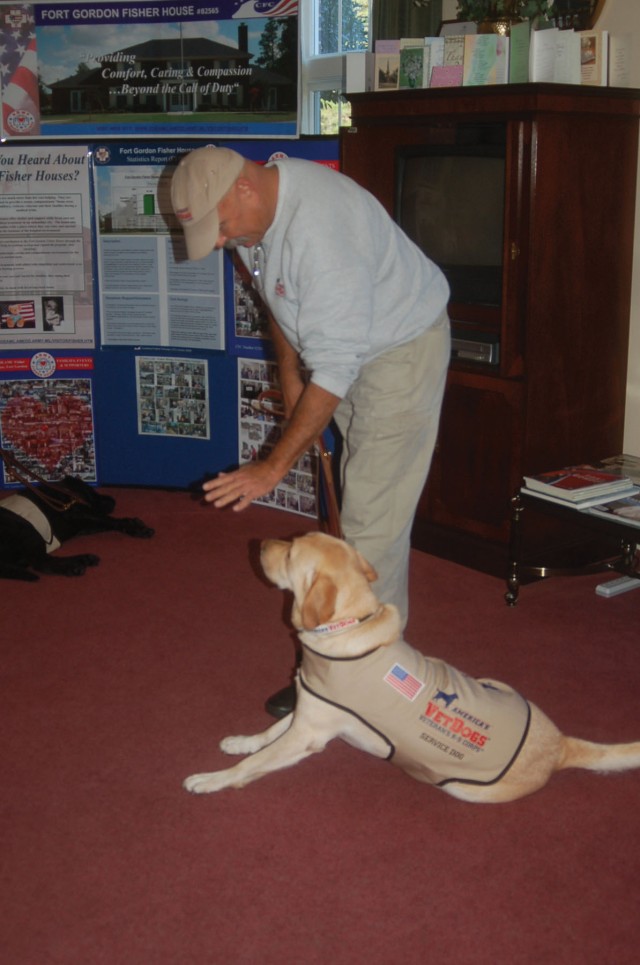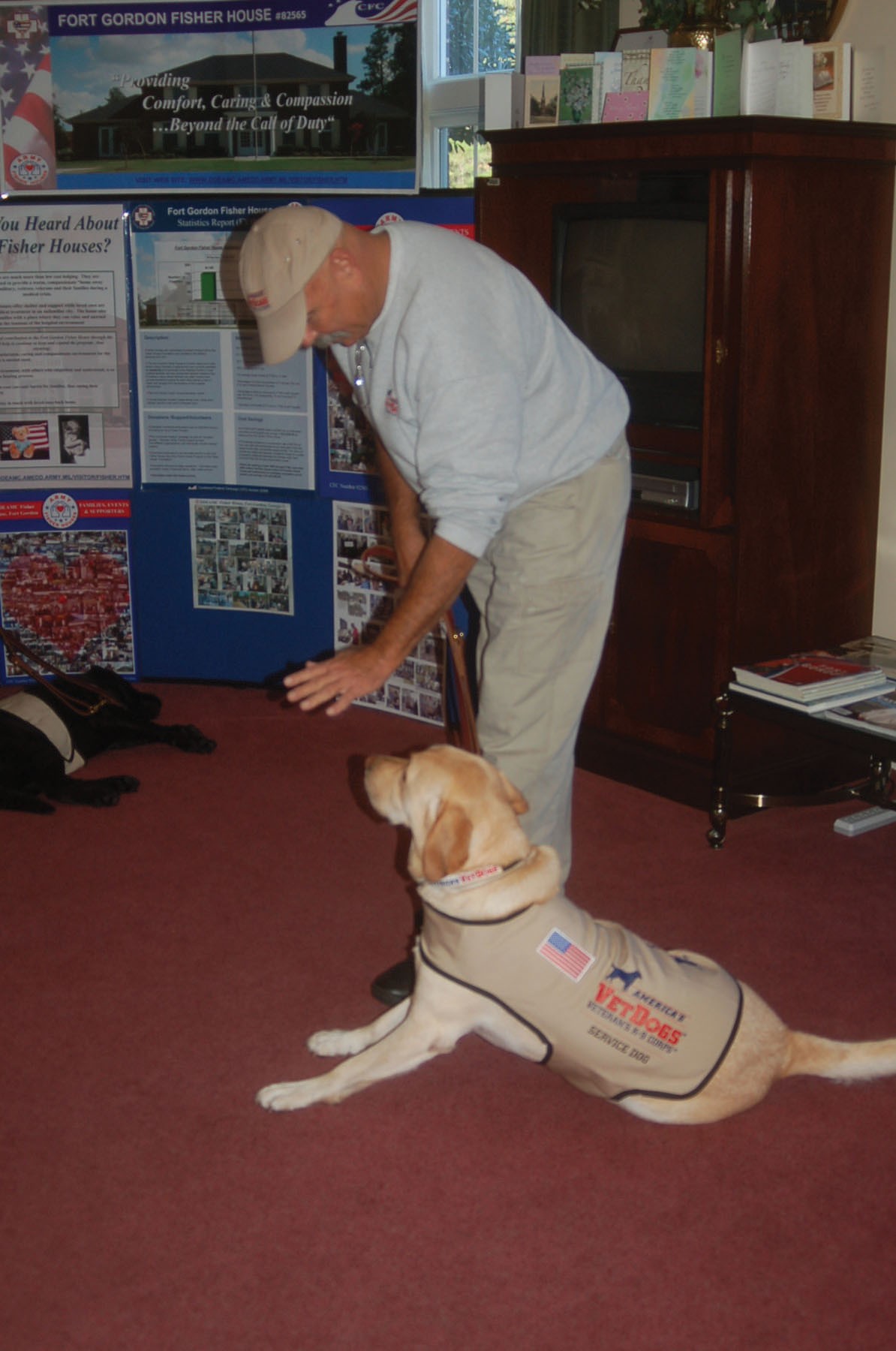Military working dogs already have duties at Fort Gordon, but a new set of canines arrived recently with a completely different mission.
Sgt. 1st Class Boe and Sgt. 1st Class Budge, along with Maverick, will be assisting hospitalized Soldiers at Dwight David Eisenhower Army Medical Center.
"On a professional level, dogs act to assist or help a disabled person regain independence and a form of dignity to get them back into public life," said Mike Sergeant with America's VetDogs, out of Long Island, New York, which trained the three retrievers.
Boe and Budge received their military stripes after their tours of duty in Iraq, according to Sergeant, and Maverick is in line for first sergeant stripes, said Cindy Rhodes, a recreation therapist in the inpatient psychiatric unit.
At Eisenhower, the three animals will work in the behavioral health section assisting patients with brain injuries or mental health issues.
"I'll be doing meet and greet activities where the dog interacts with patients breaking isolation. They can talk about the dogs. They don't have to talk about their depression," said Rhodes, who works with mental illness such as schizophrenia as well as patients with substance abuse problems.
Rhodes met Sergeant on a visit to Walter Reed Army Medical Center and has been working to get the dogs at Fort Gordon for about nine months.
The three dogs are all about five years-old and have had extensive training some as guide dogs and others as therapy dogs. According to Sergeant, the dogs begin their training in the homes of volunteers, who work first with general obedience and house breaking. When they are about 15 months-old, they are ready for more training.
Not only does America's VetDogs train the animals for use in a clinical setting, but they also help provide dogs for individual veterans who've been injured. A dog can provide balance to an amputee or someone with a traumatic brain injury.
Also, they provide companionship and look upon people without a sense of judgment, said Sergeant, who is a former military dog handler.
When their handlers are not working with patients, the dogs will stay with them at their work stations. The three have laid back dispositions and don't mind taking a nap at their handlers' feet, said Sergeant.
Budget will be working with occupational therapist Susanne Steele, and Boe will work with recreation therapist Chris Uggiano.


Social Sharing